
Merging chicken flocks can be a stressful process for you, your existing flock and the new hens you're introducing to your home. Hens form strong social groups and establish a pecking order within just a few days of being introduced to each other. In the absence of a cockerel this will range from a top (dominant) hen down to a lowest ranking hen. Once each hen knows its place in the flock and they should get on fine.
Before getting new hens we'd always recommend thinking about your setup, as it's far easier to merge flocks when you are able to keep them separate from one another for a week or so. If you need advice on this, please call our friendly Rehoming Team who will be happy to assist.
ESTABLISHING A FLOCK OF EX-BATS
When you collect your ex-bats, it is important to realise that although these girls might have come from the same farm, they may not know each other. A new pecking order will need to be established and this can take a few days to settle.
Initially the hens will be more interested in their new surroundings and at this stage they are normally polite to each other. However, within a few hours one or more birds may start to exert dominance by pecking or attacking the others, keeping them away from food and chasing them around the run. The dominant hen may also jump on backs and grab the combs of other birds; not ladylike behaviour, but an effective way to assert authority.
Merging two flocks will depend entirely on your set up, so please ask our re-homing team for advice. The ideal method is to give both flocks equal knowledge of a common shared area so all hens are on neutral territory when they meet. Knowing the best places to hide can really make a difference to a new hen entering an established flock, so give her time to learn the shortcuts and places to escape bullying.
Denne historien er fra Spring 2024-utgaven av The Country Smallholder.
Start din 7-dagers gratis prøveperiode på Magzter GOLD for å få tilgang til tusenvis av utvalgte premiumhistorier og 9000+ magasiner og aviser.
Allerede abonnent ? Logg på
Denne historien er fra Spring 2024-utgaven av The Country Smallholder.
Start din 7-dagers gratis prøveperiode på Magzter GOLD for å få tilgang til tusenvis av utvalgte premiumhistorier og 9000+ magasiner og aviser.
Allerede abonnent? Logg på
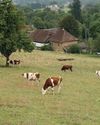
How to Buy a Smallholding in France- Long-time smallholder Lorraine Turnbull looks at the practicalities of moving to rural France
Aspiring smallholders are continually thwarted by the prices of smallholdings and property with land located within the UK. Even the humblest croft in Scotland comes with a substantial price tag and conditions which would make even an adventurous wannabee consider carefully. But all is not lost. For those willing to take the adventure of a lifetime, there is always Europe, and one of the most popular places is France.

Meet the Bournemouth goats and their supporters
These capricious animals are hard workers preserving the natural habitat

Still warm enough to sit outside with a Pizza
Henrietta Balcon uses fresh figs to create an unusual dish at Harvest time
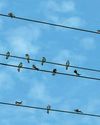
Goodbye to the birds of spring and summer
If you look and listen you might be able to see them preparing to leave says The RSPB
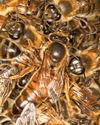
Get ready for the colder weather in the warmth of late summer
Claire Waring advises on doing the best to make sure your colonies survive until next spring

Preparing the Veg Patch for Winter
Lee Senior says, a well-run plot can excitingly continue to produce good quality, tasty, fresh food for much of winter
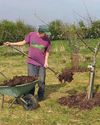
Time to prepare to plant your orchard
Wade Muggleton, smallholder and author of The Orchard Book, shares his practical experience so you can create your own fruit collection
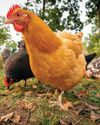
Choosing feed for the autumn
As autumn approaches, Joanna Palmer, nutritionist at the Smallholder Range, offers advice on choosing the right feed to support your adult birds through their annual moult and ensure your young birds grow and finish well at this time of the year.
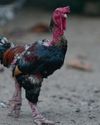
Vet advice from an experienced poultry vet
Reflecting on how much the humble hen has helped people world wide plus advice on stopping the scourge of red mite
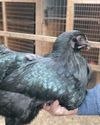
Give your hens some support
Paul Donovan looks at the right and wrong ways of handling birds